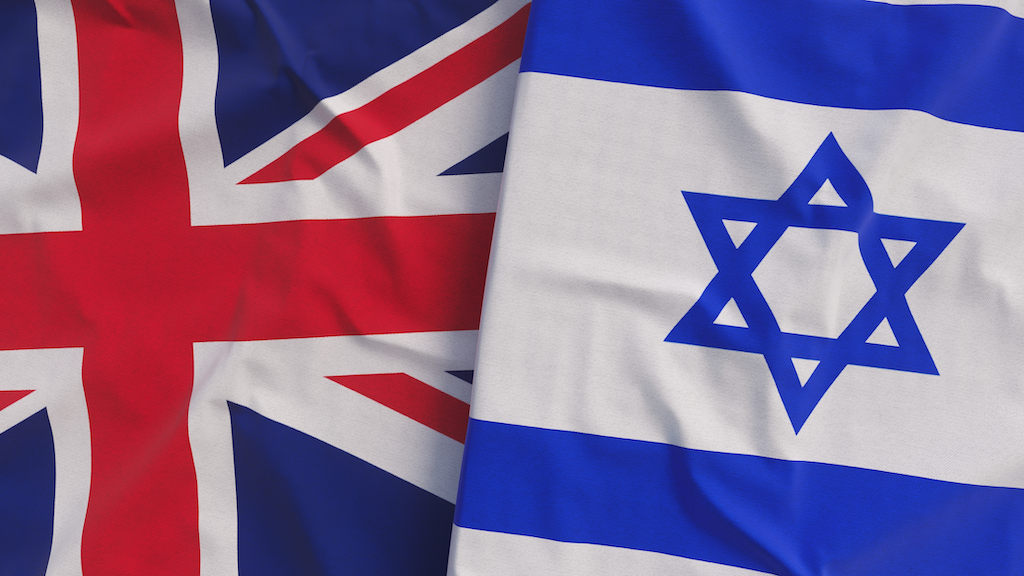Britain’s troubled relationship with the State of Israel
Watching the funeral of Queen Elizabeth II this week, one could not fail to be deeply moved by the images of the slow procession of the hearse from Westminster to Windsor Castle. Accompanied by hundreds of staff and military, attended by heads of state from around the world, surrounded by millions of ordinary people, Queen Elizabeth was brought to her final resting place.
Queen Elizabeth is succeeded by her son, King Charles III. An era has ended, and another begun.
What will it bring for British/Israel relations? What attitude will King Charles adopt towards the State of Israel?
First, it is necessary to understand that the British Sovereign is both head of state and Supreme Governor of the Church of England. These are different, and potentially conflicting, roles. Both roles significantly restrict the King’s capacity to engage in foreign relations.
Queen Elizabeth had a deep Christian faith. That in part explains her love for the Jewish people. Former UK Chief Rabbi Jonathan Sacks and his successor Ephraim Mirvis have spoken beautifully about the deep mutual affection between the Queen and the Jewish people in the UK. It is understood that King Charles and his heir Prince William share that connection and sympathy.
When it comes to the State of Israel, however, the picture is more complicated. This reflects Britain’s troubled relationship with Zionism and the Jewish State over the last century. Great Britain fought hard in WWI to liberate Palestine (and the rest of the Middle East) from Turkish domination, and its Cabinet took a huge step in adopting the Balfour Declaration on 31st October 1917, committing Britain to the establishment of a homeland for the Jewish people in Palestine. However everything went downhill from there. No sooner was the Mandate for Palestine adopted than Britain carved out most of Palestine to create an independent, Jew-free Arab Palestinian entity (Transjordan). During the Mandate period Britain did everything possible to restrict Jewish immigration into Palestine. Britain opposed the UN Partition Plan in 1947 and the establishment of the Jewish State in 1948, and supported Jordan’s aggression against the new Jewish State in 1948-9 as well as its illegal “annexation” of the West Bank in 1950.
In short, Britain has hardly been a friend of the Jewish State.
Today, as head of State, the King faces a major challenge. Queen Elizabeth made about 250 official overseas trips, to 129 countries. But she never visited Israel. This was because of unwritten Foreign Office policy banning British monarchs from visiting the Jewish State of Israel. To some extent, this was remedied by unofficial visits by Prince William and his father Prince Charles since 2018. But the fact remains that, fed by deeply-rooted antisemitism and pro-Arab sentiments, the Foreign Office has a long history of antipathy towards Jewish sovereignty in Palestine.
Can King Charles change this culture? There is hope. One of Queen Elizabeth’s last official acts was to invite Liz Truss to become Prime Minister. Truss has publicly stated that she wishes to change British policy towards Israel. She is is even prepared to contemplate moving the British embassy in Israel to Jerusalem. Whether she is able to break down the strong walls of anti-Jewish sentiment within the Foreign Office remains to be seen.
But it is his role as Supreme Governor of the Church of England that may present the most difficult obstacle facing King Charles and Prince William should they wish to translate their love of Jews into support for the Jewish State of Israel.
It must be acknowledged that parts of the Anglican church have played a very positive role in relation to the restoration of the Jewish people to the land, and the establishment of the modern State of Israel. Think, for example, of the contribution of the Anglican Church’s Ministry Among the Jewish People (CMJ) and other Anglican evangelicals in the 19th century leading to the Balfour Declaration in 1917.
Today there are prominent Anglican clergy and lay leaders in many countries who urge support for the modern State of Israel based on theological principles (see Prof. Gerald McDermott’s New Christian Zionism).
Officially, however, the Anglican Church is highly critical of the State of Israel. Anglican Synods and Committees regularly denounce Israel’s claim to sovereignty over Jerusalem, and condemn Israel for oppressing the Palestinians and infringing international law. The Anglican Peace and Justice Network (APJN) publicly condemns the “occupation”, and even supports the Boycott, Divestment and Sanctions (BDS) movement and promotes establishment of an Arab/Islamic Palestinian State in Jerusalem, Judea and Samaria.
This was reflected in a controversial Op-ed published last December by Justin Welby, the Archbishop of Canterbury, and Hosam Naoum, an Anglican Archbishop in Jerusalem. Reminding readers that the first Christmas took place against “the backdrop of the genocide of infants”, thus evoking toxic libels about the ‘ethnic cleansing’ of Palestinians, the authors blame Israel for “driving out” Christians for the region – despite the strong evidence that the Christian churches in Israel are growing and thriving.
The cause of the Anglican church’s critical attitude towards the State of Israel would appear to be a deeply-rooted “replacement theology”. Institutionally, the Anglican Church has never adopted a statement along the lines of the Roman Catholic Church’s ground-breaking Nostra Aetate (1965). Basically, although it does not say so in so many words, the Anglican Church adheres to the idea that the church has replaced the Jewish people as God’s chosen people. This is the reason it does not accept that the literal ingathering of the Jewish people and their restoration to the land have any abiding Biblical significance in God’s economy, and why it prefers to support the Palestinians, who are perceived to be the oppressed underdog.
It is unknown what position King Charles and Prince William intend to take in relation to the State of Israel and the Israel-Palestinian conflict. It is known that they support the legitimate sovereignty of the State of Israel, but they also support the establishment of a Palestinian state. Prince William’s 2018 visit revealed the tensions involved in complying with the internal inconsistencies of the current British position. On a positive note, he was the first member of the Royal Family to meet officially with an Israeli Prime Minister in Israel. He spoke warmly about “the essential vibrancy” of Israel. However, those parts of the Prince’s visit that took place beyond the 1967 lines, including those in East Jerusalem, were not organized by the British embassy in Tel Aviv but took place under the auspices of the country’s Jerusalem consulate, which is located in the Sheikh Jarrah neighborhood in the city’s eastern section. His visit confirmed the official British position that demands the establishment of a Palestinian state, and regards the Old City, (including the Western Wall) as part of occupied Palestinian territory that needs to be brought under Palestinian sovereignty.
It is unlikely that King Charles and Prince William will depart from these politically correct positions of official British policy regarding the conflict. But should they wish to speak out more favorably about the modern State of Israel than they have done so far, King Charles and Prince William will not only have to overcome obstacles within the Foreign Office, they will also inevitably face opposition from within the Anglican church.
Let us hope and pray that – both as head of state and governor of the Anglican church – King Charles will understand the deep challenges and dilemmas facing the Jewish people and the State of Israel, as well as the huge contribution made by the Jewish State to peace and security in the Middle East, and the dangers presented by the current Palestinian unilateral claims to statehood – and that he will have the courage to speak out the truth without fear or favour.





